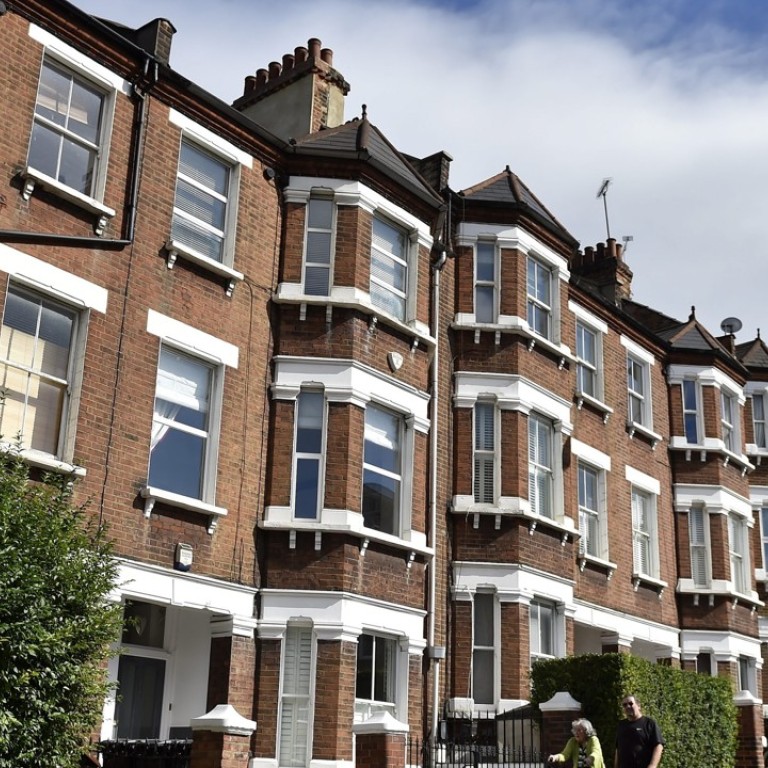
Capital attractions: London property retains allure with Hong Kong and mainland Chinese investors
Where entry level price is of concern, investors have been looking to Manchester as a suitable alternative based on the growth outlook, in rentals and capital gains
London continues to be the darling of Hong Kong and mainland investors, despite the prevailing political uncertainly and the vote on Brexit last year, say analyst and property experts.
They say any uncertainty on the part of property investors is temporary and factors such as a weaker pound, strong fundamentals and transparent property ownership procedures would continue to attract investors.
The latest news of a general election on June 8 “has certainly ruffled some feathers in the industry, with many considering what the effects on the UK property market will be”, according to Urosh Teodorovich, Hong Kong-based senior business development manager at Quintessentially Estates, a global property company.

In each case, though, any impact on investor sentiment was short-lived.
“One might expect a temporary pause for breath in investor reaction to the Brexit decision, which would be typical for such market activity,” Teodorovich says. “And, in the immediate aftermath, there was a knee-jerk reaction which saw a marked drop in inquiries as well as some deals falling through.”
He notes, however, that within six weeks of the referendum outcome, ultra high-net-worth investors and institutional investors aggressively began pursuing big ticket transactions throughout central London, both residential and commercial.
Buying activity among individual investors also recovered quickly “and we now we have a Brexit timetable, so there is more certainty in the market with buyers pushing on as a result,” Teodorovich says.
Demand from Hong Kong and mainland Chinese buyers for London property has remained strong due to the weakened pound and historical confidence in the London market in general, he adds.
“Hong Kong investors remain focused on the UK, and London in particular. This much has not changed – I would say this is still our core market,” Teodorovich says. “For PRC buyers, London has always been a lower priority [key markets are the US, Canada, and Australia] but this past year the attractiveness of the low pound, and possibly the benefits of [President] Xi Jinping’s state visit, have meant that an increasing number of mainland Chinese buyers are expressing interest in London.”
Buyers are only concerned about how quickly they can resell, should they have to. Traditionally, Hong Kong people send their kids to study in the UK, and buying property is a good way to keep an eye on their children, and for security
One trend he has noted is that, where entry level price is of concern, investors have been looking to Manchester as a suitable alternative to London based on the growth outlook, in rentals and capital gains.
David Ji, director and head of research and consultancy, Greater China, at Knight Frank in Hong Kong, says the “only thing concerning” his buyers of London property is the value of the pound.
It’s dropped by as much as one-third against the Hong Kong dollar, effectively making London purchases 30 per cent cheaper, Ji explains. Especially compared to Hong Kong’s home price, London is still perceived to be a good deal, offering rental yields around 3 to 4 per cent. “Buyers are only concerned about how quickly they can resell, should they have to,” he says.
“Traditionally, Hong Kong people send their kids to study in the UK, and buying property is a good way to keep an eye on their children, and for security.”
Sales at London property launches held by Knight Frank in Hong Kong picked up markedly after last year’s Brexit referendum as a lot of undecided buyers made their move.
“In 2016 we also did nine large commercial deals in London, all by Hong Kong-based investors,” Ji says.
He has also noticed an uptick in inquiries from mainland China-based investors looking to buy property through Hong Kong as a result of Beijing’s capital outflow restrictions.
However, both believe that much may ride on the outcome of the June election.

“Having said that, there will not be the usual long run-up to the election and by having a snap election, it will mean that any hesitancy from property buyers or vendors will have much less of an impact overall. It could be a positive decision in that it will bring some much-needed political certainty ahead of the Brexit negotiations later this year.”
He expects that, following the election, vendors will become even more realistic on the pricing of their properties. “Motivated buyers and sellers will push on and savvy buyers will make the most of this opportunity.”
The Conservative Party in power tends to reflect strong overseas investment, Teodorovich opines. “If there is a landslide [win], as some are predicting, demand from buyers here looking towards London will likely increase substantially.”
Ji agrees that the consensus among his buyers is that the election will provide clarity. “They believe that if [Conservative leader and Prime Minister] Theresa May wins as predicted, Britain will be in a stronger position to negotiate with EU.”

